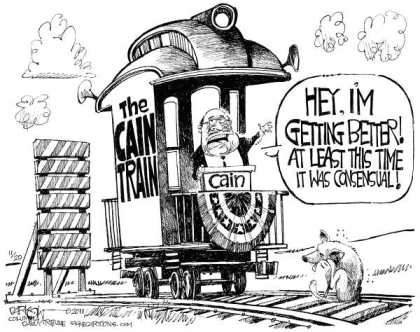I thought I was so clever. My analogy about how I approach conversations with people who disagree with me seemed so perfect. The assumption I have about most everyone who is active in politics is that we have the same ultimate goal; to make the country a better place. My analogy is that we both want to get to the same place — say we need to get to Safeway. I want to take one road and you want to take another, well, that doesn’t make either of evil, right?
So last week, I was feeling all good about my theory and approach and I tried to explain it to a Republican friend. She looked at me like I had eight heads and a tail — but people like you, she said, want to turn America socialist. You hate democracy. I tried to tell her that socialism is an economic system, that most of the democracies in the world (including ours) are capitalistic/socialist hybrids, that most of Europe, which is more socialist but anyone’s standard has more fluidity and upward mobility that we have (and higher standards of living) and that not all of us view democracy and some socialism as being mutually exclusive ideas. And, at he end of the day, don’t we seriously both want to make the US the best country it can be?
When Paul Ryan released his plan to overhaul Medicare and Social Security, I read it and hated it. Merely shifting the costs of healthcare from the government to the elderly will not impact the actual costs at all — we need real health care reform for that. That doesn’t mean I question his sincerity or his patriotism. I don’t blame Grover Norquist for anything the GOP Congresspeople do — and let me be as clear on this point as I can be, any member of Congress that voted for a tax hike, even after signing the pledge, would still be able to go back to their district and win re-election. Talk about paper tigers.
But I don’t have an ideological litmus test for my friends. I wish some of them had the same point of view.
I am a Democrat because I think out government exists to do for all of us collectively what we cannot do individually. I think a single payer health care system would be more cost effective than the system we have now. I think it would lead to more preventative care and the individual mandate is absolutely necessary for the system to work. I like the idea that my tax dollars go to help people who need it, pay for quality education, build a strong infrastructure and first rate military. And I think if we shifted the burden of health care costs from companies — with the additional step of streamlining costs — to all of us, we would make our businesses more competitive. How is that anti-capitalist? It’s not.
Moreover, I like regulations that keep my air and water clean, make sure the transportation I take is safe and my food is free of toxins and infectious agents. I don’t look back on movies like “Boys’ Town” or the novels of Charles Dickens and think — wow, we had it so good then.
And I like NASA. When President Kennedy reached for the stars, we did more than send men to the moon, we inspired generations of kids to go into sciences. The technological advancements achieved through the space program can be seen everywhere.
And I am an optimist. I don’t think we need a civil war to fix our country because I agree with Bill Clinton when he said “There is nothing wrong with America that cannot be fixed with what’s right with America.”
These are not the opinions of someone who wants us to lose our freedoms or change to a totalitarian state. If I am going to try to see your point, I wish you would make even the smallest effort to see mine.


